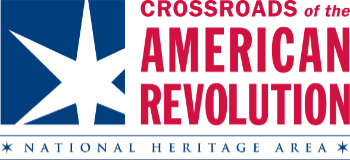Biography People
Benjamin Van Cleave Full Biography
I was born in 1773, the oldest of four boys and five girls born to blacksmith John Van Cleave. Two of my brothers and one sister died as small children. My Dutch ancestors had come from Long Island to New Jersey in 1717 and about 1751 my father’s family settled in Monmouth County and my father set up his blacksmith shop at Freehold.
My earliest important memory came when I was just five years old and was witness to events involved with the Battle of Monmouth on June 28, 1778. When I wrote my memoirs many years later I wrote that as the armies approached I well-remembered the “confusion of the women & children & their flight to the pine swamps.” When we were about a mile from home we saw the British army a mile and half in the distance. The adults got together to talk about what to do while the men went in search of our army. In the confusion I tried to return home and almost ran into the British army when the sound of their bugles “drove me back” and I found that no one had missed me. The next day my father and his brothers were assigned to separate companies of Colonel Morgan’s riflemen and helped guide them to scout the right flank of the British army. Morgan’s men did not fight in the battle, but were kept under arms, at the place our women gathered, and waited for orders. During the battle, “the firing even of the small arms was distinctly heard where we were” and our emotions swung as the army either advanced or retreated. “The day of the Battle was believed to be as hot a day as ever was felt in the New Jersey.”
After the enemy retreated overnight to Sandy Hook our family and neighbors returned home to find that with only a few exceptions buildings had been burnt down leaving only the “naked chimneys standing.” I saw that about a dozen of our neighbors lost their homes. On our farms, we found a “great part of the trees in some orchards cut down the woods burnt & property that had been hid destroyed or carried away, the earth strewed with dead carcases sufficient to have produced a pestilence.” My father found that he “had neither a shelter for his family, nor bread for them, nor clothes to cover them save what we had on. He saved a bed & looking glass only.” Among our animals “a yearling heifer had escaped the enemy, & a sow whose back was broken with a sword lived.” My father’s blacksmith shop was destroyed but his anvil “I believe, remained among the rubbish & ruins,” while “several wagons & an artillery carriage” were burnt at the shop. Fortunately, an artillery piece at the shop had been “thrown into a hole of muddy water in the middle of the road & was not found by the enemy.”
After the battle, the British and Refugees continued to come to our area to attack us in the night. Because of these continuing attacks the militia was almost constantly out on service and my father was away from home much of the time and was caught up in some of the skirmishes with the Tories. In spite of the militia efforts “some of our neighbours within a mile distance were taken prisoners & conveyed to the Sugar house & prison ships at New York.” These prisons were well known to us for their crowded conditions that produced hunger, disease, and many deaths. One of our neighbors who lived within 300 yards of us was taken at a neighbor’s house only a mile away and died while in the Sugar House. Because the war continued on, it took a long time to recover and when my father was taxed in 1779 to support the war, among the many types of possessions that were taxed he owned only a single cow.
In 1785, my family moved to Washington County, Pennsylvania, near Pittsburgh and then further west to Cincinnati, Ohio in 1790. We sought to put down roots and my father established a new blacksmith shop there. However, only a year later he was killed in a skirmish with Indians. I was only eighteen years old and had to support my mother and my three younger siblings. I continued the family business for a short time before joining the army myself to participate in military campaigns against the Indians. After my military service ended I looked for a job and, in spite of my limited education, found employment as the county surveyor and as clerk to the territorial legislature. I eventually settled my family on a farm near Dayton, Ohio, north of Cincinnati and died there in 1821.
FURTHER SOURCES
Bond, Beverly W., ed. “Memoirs of Benjamin Van Cleve.” Quarterly Publication of the Historical and Philosophical Society of Ohio, vol xvii, 1922, Nos. 1 and 2, January-June (Cincinnati: The Abingdon Press, 1922). Available online at: https://archive.org/stream/memoirsofbenjami00vancrich#page/n7/mode/2up
